- Hannah EMRICH immigrated to the United States in 1850 and married Isaac WORMSER from Michelstadt, youngest son of the famous Rabbi Seckel Löb "Ba'al Shem of Michelstadt" and Johanna nee BENZINGER, in Cleveland in 1855. They had seven children: Moses (1855), Leopold (1858), Bertha (1861), Bella (1863), Esther (1865), Adaline (1867), and Amelia M. (1869). Hannah died in Cleveland 1911.
- Feiss
"Ferdinand" EMRICH
immigrated to the United States in 1850 and married Sarah ROSKOPH,
daughter of Kalman and Karolina nee GOTTGETREU,
in
Cleveland in 1857. He worked variously as a drover, horse and cattle
dealer, and butcher throughout his life. Ferdinand and Sarah had six
children:
Samuel Herbert (1860) in Bucyrus; Bertha (1862), Stella (1864), Julius
M. (1865),
Emanuel (1868), and Amelia (1871) in Cleveland. After Sarah's death in
1874,
Ferdinand married Caroline
HOFFMAN in Cincinnati in 1875.
With Caroline, Ferdinand had an additional five children: Rosa (1876),
Selma (1878), Florence (1880), Hilda Martha (1884), Milton Robert
(1886), and
Edward Fred
(1888).
Ferdinand died at his home in 1900 followed by Caroline in 1928. (descendance from Oppenheim family)
- Samuel Herbert EMRICH married Bertha Melissa GOFF from Michigan (previously married in 1890 to Charles Fritz SCHMIDT and had a son, Charles Fritz (1890)), daughter of Sylvester and Melissa nee LEWIS, in Denver in 1892. They had five children: Emanuel (1893), Samuel Leopold (1894), Otto Mears (1897), Sylvester Theodore Roosevelt (1900), and Bertha Mae (1903). After Samuel and Bertha divorced in Denver in 1908, Bertha married William Henry SEARCY and died in 1933. Samuel died in Fort Wayne, Indiana, in 1943.
- Emanuel EMRICH married Elizabeth SROVNAL, daughter of James and Anna nee VLASEK, in Cleveland in 1916. They had three children: Ferdinand R. (1918), Walter J. (1919), and Emanuel (1923). Emanuel (senior) died in Cleveland in 1972.
- Ferdinand R. EMRICH died in Roswell, New Mexico, in 1999.
- Walter J. EMRICH died in 1970.
- Emanuel "Manny" EMRICH married Dorothy "Dottie" and died in Islamorada, Florida, in 1998.
- Samuel Leopold EMRICH married Irene and died in Hallowood, Virginia, in 1972.
- Otto Mears EMRICH married Gladys ARTHUR, also from Colorado, in 1919.
- Sylvester Theodore Roosevelt EMRICH married Verlyn EVANS nee UNDERHILL, daughter of George and Delia nee DOWNING, in Allen, Indiana, in 1928. He later married Francis Harriett HAZEL.
- Bertha Mae EMRICH married Martin H. HERSKOWITZ, from Hungary, in Cleveland, Ohio, in 1921.
- Bertha EMRICH married Simon M. THORMAN, son of Meyer and Fannie nee HOFFMAN,and resided in Cleveland, Ohio. They had at least three children: Anthony, Sylvia S. (1884), and Irma (1889). When Simon died in 1924, Bertha moved first to Council Bluffs, Iowa and then to Los Angeles, California where she died in 1946.
- Stella EMRICH married Samuel GREENBAUM, a tailor from Hungary and son of Jacob and Hannah nee ENGLANDER. They had six children: Jacob E. (1888), Sarah (1891), Morton E. (1893), Edward (1895), Gertrude (1900), and Florence (1901). Stella died in 1941.
- Julius M. EMRICH married Emma GLAUBER, daughter of Marcus and Rosa nee HELLER, in Cleveland in 1889. They had four children: Serena (1890), Emanuel Marcus (1893), Oliver Samuel (1900), and Raymond F. (1903). Julius died in 1924.
- Serena EMRICH married Sidney Albert MENDELSON, son of Michael and Dora nee LICHTIG, in Cleveland in 1916. She died in Cleveland Heights in 1955.
- Emanuel Marcus EMRICH, an accountant, married Julia HERSKOWITZ, daughter of Benjamin and Sarah nee SMULOVITZ, in Cleveland in 1953. He died in Cleveland in 1972.
- Oliver Samuel EMRICH married Ruth Elizabeth STEINER, daughter of Louis and Bertha nee MAHRER, in Cleveland in 1930. He worked as a purchasing agent and died in Cleveland in 1957.
- Raymond F. EMRICH married Alice H. STEINER, daughter of Louis and Bertha nee MAHRER, in Cleveland in 1926. He died in Gulfport, Mississippi, in 1956.
- Emanuel EMRICH was a firefighter in Denver, Colorado, and died in a tragic accident in 1892.
- Amelia EMRICH married Edward Andrew BENEDICT, son of Leopold and Sarah nee BECKER, in Cleveland in 1893 and had two daughters, Sylvia (1893) and Florence (1897). She remained in Cleveland until her death in 1956.
- Rosa EMRICH died as a child in 1887.
- Selma EMRICH's first marriage was with Sol George BAUMGARTEN in 1902 followed by a second one to Morris J. ROSE in 1911. They had two children, Robert F. (1913) and Janet (1918). Selma died in Shaker Heights, Ohio, in 1958.
- Florence EMRICH died as a child in 1882.
- Hilda Martha EMRICH married Charles Alexander STONE, son of Moritz and Louisa nee KOBLITZ, in 1907 and had children Dorothy Louise (1909) and Carolyn E. (1914). She died in 1975 in Warrensville Heights, Ohio.
- Milton Robert EMRICH married Hannabelle BAER, daughter of Julius and Belle nee DRUKKER, in Jackson county, Missouri, in 1920 and had children, including: Betty (1922). He died in Shaker Heights, Ohio, in 1951.
- Betty EMRICH married George Washington FURTH, son of George
Washington and Jessie nee BACH, in Cleveland in 1939 and had a son,
Lawrence Alan (1948). After a divorce, she married Morton D. BARRISCH,
son of Morton and Sarah nee ROBIN, in Cleveland in 1953 and had
children, including Robin Ann (1957). Morton died in 1984 followed by
Betty in Ripley, West Virginia in 2003.
- Edward Fred EMRICH never married and died in Cleveland in 1971.
- Amalia EMRICH married her first cousin, Sentel BREIDENBACH (born 1825), son of Mortchen and Nandel from Rimbach, and had ten children: Nanna (1861), Emilie (1863), Johanette (1865), Berta (1865), Marx (1866), Sophie (1868), Mina (1870), Justine (1873), Moritz (1875), and Ida (1875). Amalia died in Cleveland in 1904.
- Moses EMRICH immigrated to the United States in 1853, married Rachel TROUNSTINE of Cincinnati, daughter of Martin and Elizabeth nee KIEFER, in 1867, and had children: Selma (1871), Blanche (1874), and Helen R. (1888). Moses died in Bucyrus in 1900 followed by Rachel in Cleveland in 1930.
- Selma EMRICH married Frank S. THORMAN, son of Simpson and Regina nee KLEIN, in Cleveland in 1891 and died there in 1945.
- Blanche EMRICH married Benjamin NEW, son of Isaac and Rebekka LANGERMANN, in Cleveland in 1896 and died there in 1958.
- Helen R. EMRICH married Mortimer I. STRAUSS, son of Isaac and Sarah nee SKALL, in Cleveland in 1913 and died there in 1972.
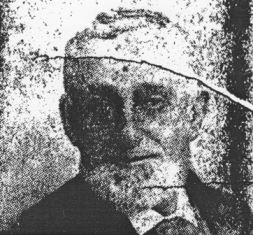 |
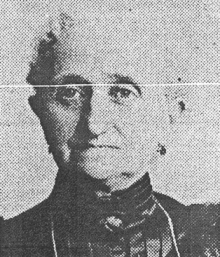 |
|
Ferdinand
Emrich
|
Hannah (Emrich) Wormser
|
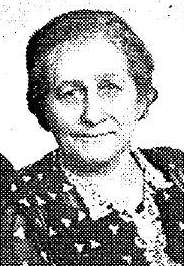 |
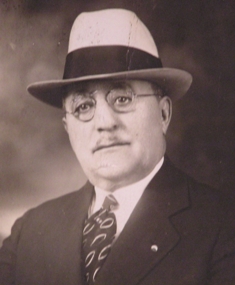 |
|
Stella
(Emrich) Greenbaum
|
Samuel
Herbert
Emrich
|
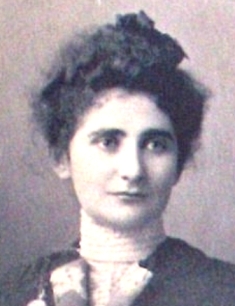 |
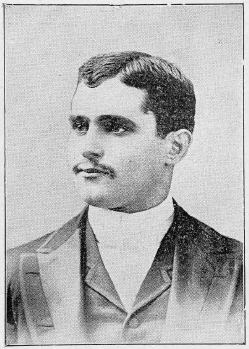 |
|
Amelia
(Emrich) Benedict
|
Julius
M. Emrich
|
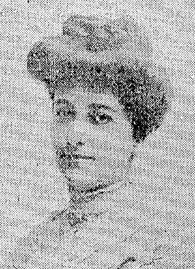 |
|
Hilda
(Emrich) Stone
|
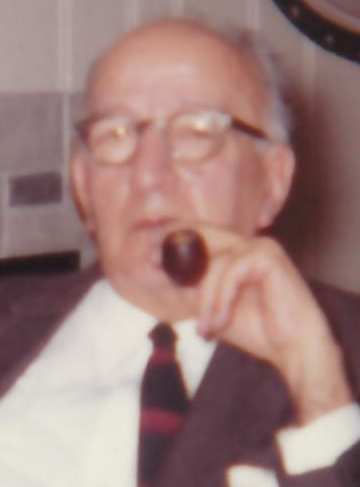 |
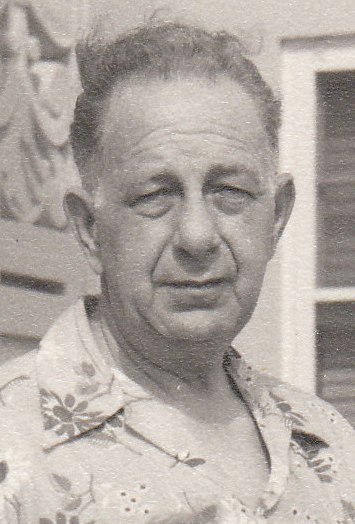 |
|
Edward Fred Emrich
|
Milton Robert Emrich
|
- Joseph EMRICH married Reis "Regina" KAUFMANN from Lützelsachsen, daughter of Moses and Bonle "Babette" nee HIRSCH, in Hemsbach in 1852 and had at least three children: Ferdinand R. (1853), Hannchen (1855), and Joseph (1856). Regina died in 1852 followed by Joseph in 1856.
- Ferdinand R. EMRICH immigrated to the United States in 1869 and settled in Kansas City, Missouri. He never married and died there in 1941.
- Hannchen EMRICH died as an infant in 1856.
- Joseph EMRICH immigrated to the United States in 1872.
- Regina EMRICH married Abraham WOLF and had at least one daughter, Betty (1862).
- Feiss "Felix" EMRICH immigrated to America in 1850 and married Sarah ADLER, daughter of Isaac and Eliza, in Manhattan, New York, in 1881. He later moved to Kansas City and then to St. Joseph, Missouri, where he died in 1902.
- Isaak EMRICH died as an infant in 1834.
- Moses
Aron EMRICH married Rosa BODENHEIMER from Heppenheim, daughter of
Wilhelm and Fanny nee OPPENHEIMER, in Hemsbach in 1863 and had eight
children: Bertha (1864), Liebman M. (1865), Henrietta
(1866), Max M. (1868), Felix
(1869), Louis (1871), and Rebecca (1876). Moses died in 1876. Rosa
and all of the children (except
Henrietta), immigrated to the United States and lived in Kansas City,
Missouri. Rosa died in Kansas City in 1898.
- Bertha EMRICH married David WACHENHEIM, a dry goods merchant, in 1896. They had no children and both died in Kansas City, David in 1922 and Bertha in 1933.
- Liebman EMRICH, who arrived in 1878, married Cora SCHLESINGER from Minnesota, daughter of Abraham and Sarah, and had at least three children: Myron Robert (1911) in Denver, Colorado; Adele S. (1914) and Rose L. (1916) in Missouri. He worked in the vinegar and pickle manufacturing industry and died in Kansas City in 1926.
- Myron Robert EMRICH married Maurine "Cissie" G. MESSEL, daughter of Herman David and Reba Philips, in Shoshone, Idaho, in 1949. They were divorced in 1978. Myron died in Riverside, California, in 1997 followed by Cissie in 2013.
- Rose L. EMRICH died in Riverside, California, in 1991.
- Max EMRICH immigrated in 1882 and settled in Kansas City. He worked in the vinegar and pickle manufacturing industry, never married, and died in Kansas City in 1942.
- Felix "Frank" EMRICH, a dry good salesman, immigrated with his siblings Louis and Bertha in 1887, remained single, and died in 1938.
- Louis EMRICH never married and died in Kansas City in 1940.
- Rebecca EMRICH never married and died in Kansas City in 1937.
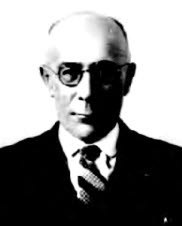 |
|
Max
M. Emrich
|
- Babette EMRICH died as an infant in 1836.
- Feiss EMRICH married Jette HOFFMAN from Hüffenhardt and had ten children, including: Regina (1868), Bernard (1870), Bertha (1873), Karoline (1875), Luise (1877), and Abraham. Feiss died in Hemsbach in 1914.
- Regina EMRICH married Löb MANNHEIMER, a merchant from Bruchsal. They were killed in the Holocaust along with their children.
- Bernard EMRICH married Clara MERKELHEIMER and had two daughters, Mina (1900) and Lina (1901).
- Mina "Meta" EMRICH lived in Frankfurtwas killed in the Holocaust.
- Lina EMRICH was killed in the Holocaust.
- Bertha EMRICH married Max FRANK, son of Samuel and Bella nee OPPENHEIMER, in New York in 1906.
- Luise EMRICH married Emanuel KIEFER from Lampertheim in 1898 and had at least two children including Henriette (1911).
- Henriette KIEFER married Henry WENK. In 1952, she immigrated to America and died in Chicago, Illinois, in 2006.
- Abraham EMRICH died in Hemsbach in 1881.
- Isack Aron "Isidor" EMRICH married Berta ABERLE and had three children: Alfred (1876), Richard (1878), and Alice (1886). In 1878, Isidor began a jewelry company in Pforzheim. Berta died in 1921 followed by Isidor in 1930.
- Alfred EMRICH married Laura HORKHEIMER and had a daughter, Marianne (1915). After his father's death, Alfred continued the family jewelry company in Mühlacker and expanded its product line. He died in the Holocaust at Auschwitz.
- Marianne EMRICH died in the Holocaust at Auschwitz.
- Richard EMRICH married Anna and had at least one son, Kurt (1910). They immigrated to England in 1934, where Richard died in 1947.
- Kurt "Keith" EMRICH took over management of the Emrich jewelry company in 1947.
- Alice EMRICH married Karl BACH. Karl died in the Holocaust, while Alice lived until 1984.
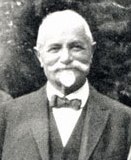 |
|
Isidor
Emrich [3]
|